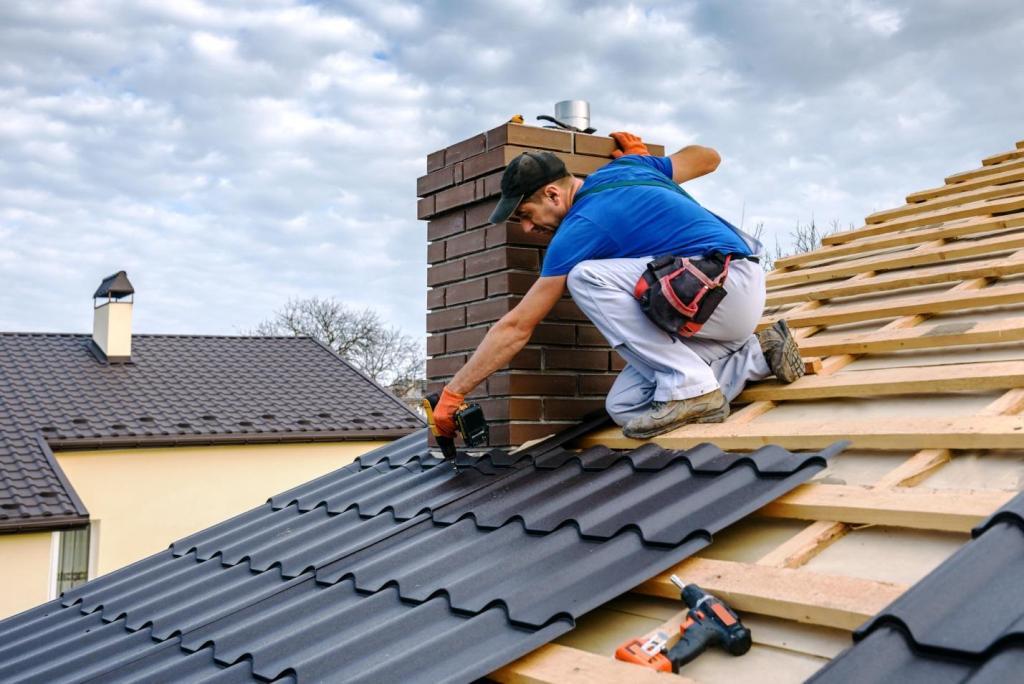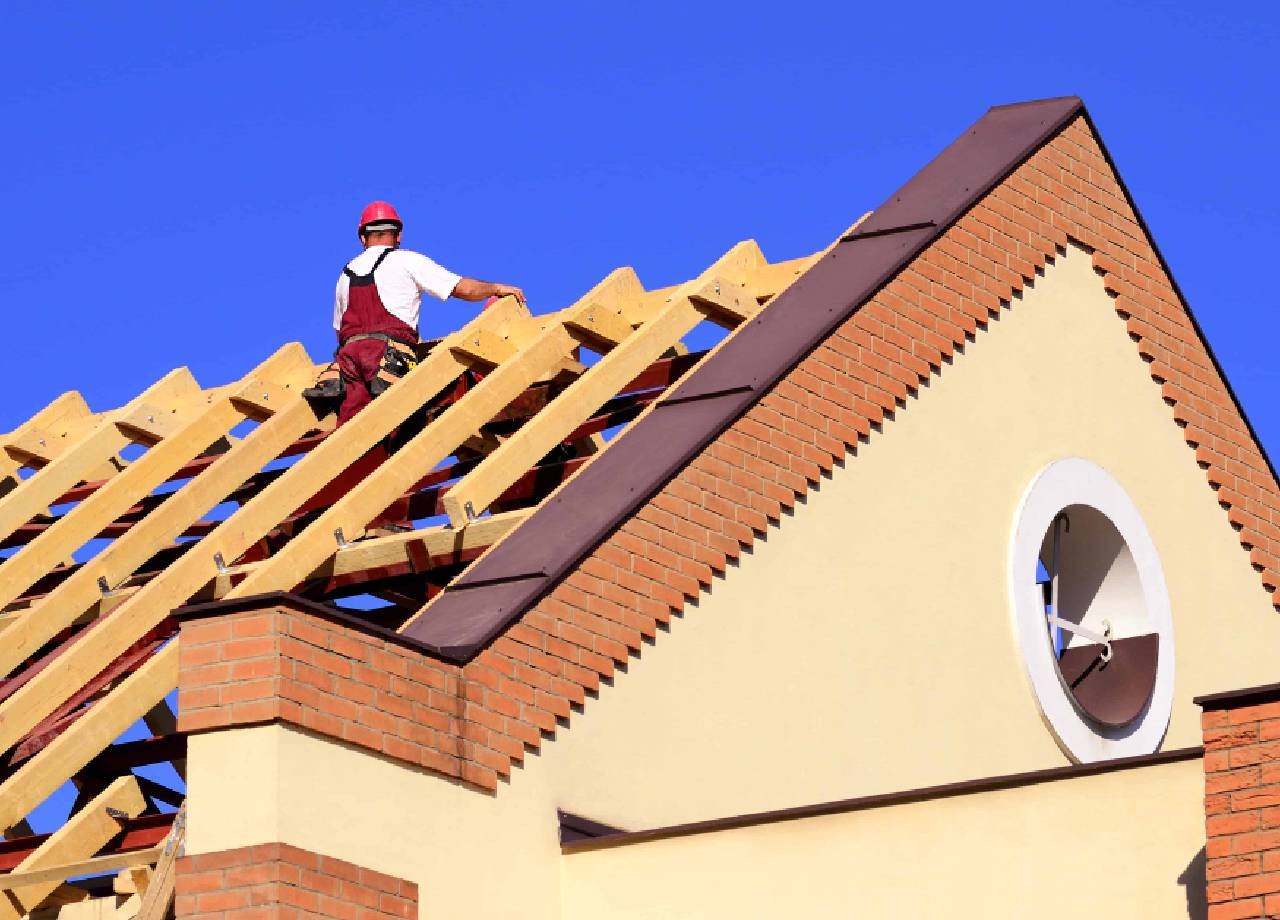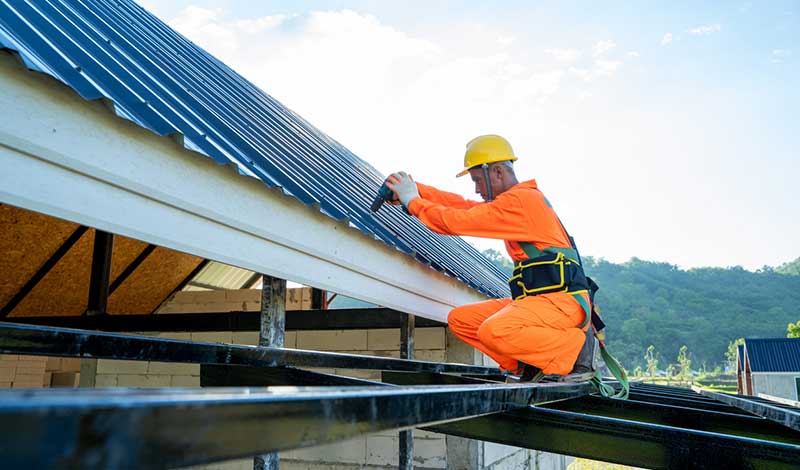Comprehending the Perks of Roofing Flat Roof Covering Setup Methods
The exploration of flat roof covering setup methods presents an engaging situation for their adoption in both residential and industrial applications. Significantly, these roofing systems supply substantial cost-effectiveness and power effectiveness advantages, along with flexible design alternatives that can improve residential or commercial property visual appeals. Their reduced maintenance requirements and possible for environmental advantages add to their allure. Nevertheless, understanding the complete scope of these benefits involves taking a look at various variables that influence their lasting performance and sustainability. What are the vital factors to consider in choosing the appropriate flat roof for specific requirements?
Cost-Effectiveness of Flat Roofs

Additionally, the convenience of setup related to flat roofing systems can bring about reduced labor expenses. Since they require much less framing and structural assistance, specialists can finish setups much more quickly and successfully. This effectiveness can also convert right into decreased time on-site, further decreasing overall expenditures.
Upkeep costs can additionally play a function in the cost-effectiveness of flat roof coverings. While they might require routine evaluations and repairs, their access enables for easier upkeep, potentially leading to lower lasting service prices. It is essential to take into consideration the longevity and toughness of the roofing materials made use of, as these factors can affect total cost-effectiveness over the roofing system's life-span. Ultimately, flat roof coverings can be a financially feasible alternative, particularly for industrial and industrial applications.
Power Performance Benefits
Flat roofing systems not just supply price advantages but also contribute substantially to power performance. Among the primary benefits of flat roof is their capability to suit advanced insulation methods. The insulation can be set up directly above the architectural deck, minimizing thermal decreasing and bridging heat loss throughout colder months. This results in lower energy consumption for heating & cooling, eventually leading to decreased utility bills.
In addition, level roofings can support reflective materials or coverings that enhance power efficiency. These products reflect sunlight, lowering warm absorption and preserving cooler indoor temperature levels throughout heat. This not only boosts passenger comfort but additionally minimizes the reliance on air conditioning systems, therefore more reducing energy prices.
Additionally, the design of level roofings allows for the possible setup of green roofs or photovoltaic panels. Environment-friendly roofing systems can supply additional insulation and lower the urban warmth island impact, while solar panels can harness renewable resource, adding to a sustainable power cycle. In general, the power effectiveness advantages of flat roofs make them a progressively popular option in both residential and business applications, aligning with contemporary power conservation goals.
Style Convenience

Furthermore, the flat roof design helps with the consolidation of solar panels and eco-friendly roof, promoting sustainability while maintaining a sleek profile. This adaptability encompasses the choice of products, as level roof coverings can be created making use of a range of compounds, including rubber, bitumen, and pvc, each offering unique advantages in regards to durability and aesthetic allure.
Furthermore, the lack of sloped surface areas permits simpler construction and can considerably reduce the total structure height, which may be crucial in city atmospheres - Cuyahoga Falls Roof Repairs. The design flexibility integral in level roofing systems not only boosts aesthetic appeal yet likewise deals with the useful requirements of residents, making them an increasingly preferred option in modern design. This flexibility index placements level roofing as an engaging choice in design-forward tasks
Reduced Maintenance Requirements
While several roofing systems call for regular maintenance and intensive upkeep, level roofs are designed to minimize these demands, using a functional service for homeowner. One of one of the most substantial advantages of flat roofing systems is their low upkeep requirements, which can cause long-term expense financial savings and much less inconvenience for home owners and commercial building supervisors alike.
Level roofings usually include durable materials such as EPDM, TPO, or customized asphalt, which are engineered to withstand different climate problems with minimal wear. Their design permits easy gain access to, allowing simple assessments and upkeep tasks. Building owners can carry out routine checks to identify possible concerns, such as pooling water or debris check it out build-up, without the intricacies typically related to sloped roofs.
Furthermore, level roofs are much less prone to certain types of damage, such as roof shingles loss or leaks brought on by the gliding of snow and ice. This strength further contributes to lowered upkeep needs. Eventually, the low maintenance requirements of flat roof coverings not just enhance their charm but additionally offer homeowner with assurance, recognizing their roof is reliable and reputable throughout its lifespan.
Environmental Effect Considerations
When thinking about a roofing solution, the ecological impact of level roofing systems arises as an important element for lots of homeowner. Flat roofs can offer numerous benefits in terms of sustainability, particularly when utilizing eco-friendly products and innovations. For example, lots of flat roof use materials that are recyclable or made from recycled material, which helps lower the total carbon footprint.
Additionally, level roofs can be created to fit green roofing systems, including plants that boosts air high quality while supplying insulation and stormwater monitoring. This not just boosts the structure's energy effectiveness yet likewise minimizes the urban heat island impact, which is increasingly important in densely booming locations.
Additionally, flat roofs often promote the setup of solar panels, enabling homeowner to harness sustainable energy. This integration not only lowers dependence on fossil fuels but likewise adds to decrease energy expenses with time.
However, it is important to think about the product choices and installation techniques to make certain that the environmental benefits are optimized. By choosing sustainable techniques, level roofing installments can play a significant duty in promoting environment-friendly building styles, eventually adding to a healthier planet.
Final Thought

The products required for flat roof coverings, such as EPDM, TPO, or customized asphalt, frequently come at a lowered cost contrasted to the intricate materials made use of for sloped roofs, such as ceramic tiles or tiles.
In enhancement, the design of flat roof coverings allows for the prospective installment of green roofings or solar panels. Generally, the power effectiveness benefits of level roof coverings make them a significantly popular option in both household and commercial applications, straightening with modern energy conservation goals.
Inevitably, the reduced maintenance demands of flat roof coverings not just enhance their appeal but likewise supply property owners with peace of mind, knowing their roofing system is trusted and reliable throughout its life expectancy.
The low maintenance requirements and positive environmental impact, particularly through the integration of solar panels and eco-friendly roofing systems, establish flat roofs as a sustainable choice.